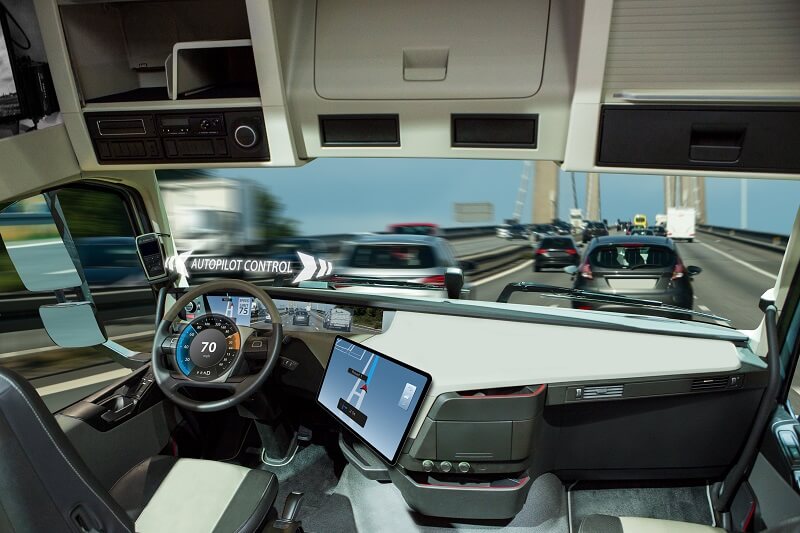During the mid-2010s, self-driving vehicles of every variety – from sedan to semi – felt like an inevitability on the roadways within the next handful of years. General Motors, Toyota, and Honda all predicted that they would be producing self-driving cars by 2020.
That anticipated reality didn’t come to fruition, as the technology of the late 2010s and early 2020s couldn’t realistically support driverless or semi-driverless vehicles at scale and anticipate the unforeseen events synonymous with driving.
Public sentiment about self-driving vehicles hasn’t improved with time, either. According to a AAA poll conducted in January 2024, 66% of American drivers expressed fear about fully self-driving vehicles, with another 25% feeling uncertain about the technology. However, the poll also found majority support for semi-autonomous vehicle features that have grown more popular in new vehicles, such as automatic emergency braking, reverse automatic braking, and lane keeping assistance.
But as 2024 progresses, self-driving vehicles, including autonomous Class 8 trucks, appear to be having something of a mini-renaissance.
In this article, we’ll look at the latest developments for self-driving and semi-autonomous trucks and discuss how the possible acceleration of the technology might affect carriers.
A review of recent developments in the self-driving truck sector makes one thing crystal clear: Texas is the place to be if you want the chance to see a driverless truck on the highway.
 Currently, at least four companies – Aurora Innovation, Kodiak Robotics, Waabi, and Torc Robotics – all plan to operate driverless tractor-trailers in the Lone Star State by the end of 2026 or before. Aurora and Kodiak are preparing to launch driverless trips on Interstate 45 and I-20, respectively, by the end of the year. Both companies currently operate journeys with safety drivers in the cab to monitor the truck’s behavior and take the wheel if human intervention is necessary.
Currently, at least four companies – Aurora Innovation, Kodiak Robotics, Waabi, and Torc Robotics – all plan to operate driverless tractor-trailers in the Lone Star State by the end of 2026 or before. Aurora and Kodiak are preparing to launch driverless trips on Interstate 45 and I-20, respectively, by the end of the year. Both companies currently operate journeys with safety drivers in the cab to monitor the truck’s behavior and take the wheel if human intervention is necessary.
Waabi aims to introduce a driverless fleet in 2025, while Torc plans to launch a “driverless lane” on I-35 in Texas in 2026.
That begs the question: How are these companies ensuring that self-driving tractor-trailers are safe to run without a driver? After all, there have been lethal incidents in the recent and not-so recent past with smaller autonomous vehicles that weigh a fraction of the amount of a truck with a full load of freight.
While each company’s tech and computing capabilities vary, the improvements that these companies are confident in – and hope will gain carrier and regulatory buy-in – can be succinctly narrowed down to improvements in sensing and seeing surroundings on the road and learning about driving events through AI.
The question of self-driving truck adoption for carriers is one that has the potential to both recalibrate the entire transportation industry and define the labor market in trucking for a generation or more. If autonomous trucks become practical for carriers to use at scale, the technology could boost fleet efficiency and cut costs.
Would industry-wide adoption of autonomous trucks mean the end of the professional truck driver as we know it? What will it mean for driver recruitment and retention efforts if a carrier is in the process of going driverless?
No one can answer those questions definitively now, but even if driverless tractors become feasible for midsized and smaller carriers, there will be an extensive transition period. In other words, no one should expect millions of tractor-trailers to be without drivers in the next five to 10 years.
Aurora CEO Chris Urmson went so far as to tell The Associated Press, “If you’re driving a truck today, my expectation is you’re going to be able to retire driving a truck.”
One policy that appears to be gaining steam is mandating that drivers are in the cab of an otherwise autonomous tractor-trailer. Legislation to that effect has been introduced in California and New York, and the Teamsters support keeping drivers in autonomous trucks nationwide. The federal government, through the Federal Motor Carrier Safety Administration, plans to introduce regulations governing autonomous commercial vehicles in December.
Regardless of what laws or rules are adopted by the states or federal government, big-name carriers and fleets are investing in self-driving trucks today. Werner, FedEx, and Uber Freight are currently working with Aurora, while for-hire giants Schneider and C.R. England have tested autonomous trucks with Torc.
C.R. England VP of Equipment and Fuel Ron Hall told Transport Topics earlier this year, “We don’t see this as displacing driver jobs. We see this as enhancing our network to the point where we can improve driver jobs and expand into areas where drivers are just not available.”
No matter what the future holds with self-driving technology, you and everyone who helps run your fleet know that you’re going to need actionable insights powered by data from the road. ATI, Transflo’s telematics division, can help deliver the specific – and customized – tools you need to maximize fleet efficiency before any truck goes on a driverless trip.
To learn more about how Transflo solutions can benefit your fleet, book a meeting with a member of our sales team at your convenience by clicking here.